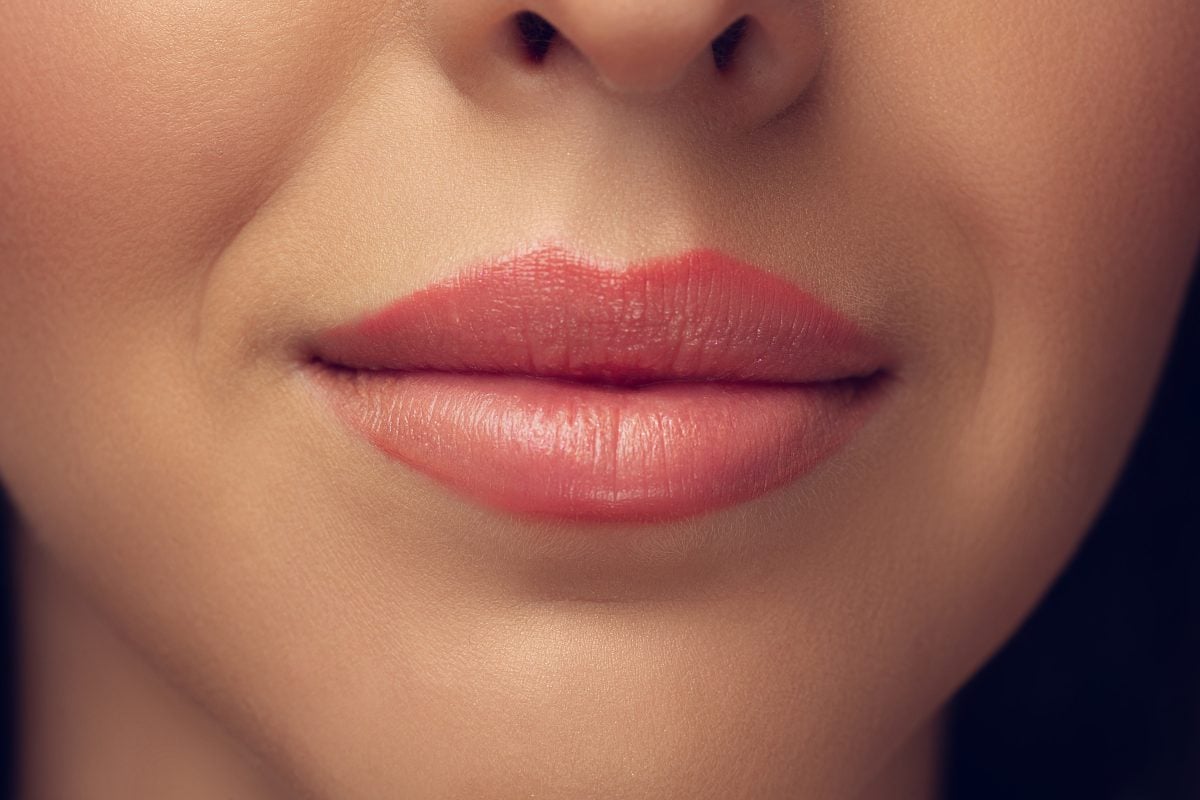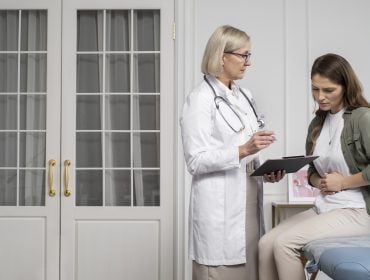What STDs can you get from Saliva?
Sexually transmitted diseases (STDs) can transmit through various forms of contact, including exposure to saliva. While the risk varies based on the specific STD, concerns about transmission via kissing or oral activities highlight a need for awareness and testing. Oral STD tests offer an effective way to diagnose infections that may present with symptoms in the mouth or throat.
With such ailments potentially spreading even without intercourse, understanding signs like sores or discomfort becomes crucial in identifying and managing these health conditions effectively.
Understanding Saliva-Transmitted STDs
Saliva plays a key role in the spread of certain STDs, like gonorrhea. Recent studies show that men having sex with men (MSM) can pass this infection solely through kissing due to bacteria in their saliva. These findings led experts to believe the throat might be crucial for passing on gonorrhea more than previously thought.
Research indicates nearly half of MSM with untreated oropharyngeal gonorrhea had detectable amounts in their spit using advanced tests called NAATs. Condom use during anal sex helps prevent chlamydia. However, it may not stop oral STIs, which often have no symptoms and go undiagnosed without targeted screening; these can be unknowingly passed through activities like kissing.
Understanding these transmission pathways emphasizes why it’s vital to recognize potential oral STD indicators and promotes awareness about getting tested regularly even if traditional risk factors don’t apply – revealing another layer within sexual health we must consider seriously.
Common Symptoms of Oral STDs
People with oral STDs might show signs or none at all. When present, they can mirror other health issues which makes them tough to spot without tests that doctors do for a close look at your private and anal areas. Tests are specific: swabs from genitals and rectum track gonorrhea; blood samples detect HIV and syphilis.
If you’ve got an ulcer, special microscopes check the fluid to confirm syphilis. Some infections clear up fast after antibiotics like chlamydia or gonorrhea while others linger like herpes or HIV – these can’t be cured yet but treatment helps manage symptoms well. Knowing about STDs matters so we cut down infection rates by treating it right away when found early on through testing, avoiding serious future problems.
Remember too, having one kind of STD ups the chance of getting another such as HIV — staying safe is key! Partners should know if you have an STD because it affects their health too.
Risks Associated with Kissing
Kissing can pass STDs, such as herpes. These viruses live in saliva. Oral contact may seem safe but has risks too.
Herpes causes sores that hurt and last weeks. If someone’s lip touches another’s skin near genitals or mouth, they might get sick. People often think oral sex is risk-free, yet it isn’t; condoms for men and dental dams for women reduce dangers a lot during these acts.
Everyone who is sexually active should test for diseases – a 10 panel test from STDCheck.com checks for all the most common saliva based STDs. Good news exists though: using protection stops most infections from spreading through kissing or any sexual way – facts show this true time after time.
Testing for Oral STIs: Procedures
When it comes to testing for oral STIs, the process is straightforward. A person may need a blood draw or give a urine sample. Sometimes, though, they’ll use a swab from inside their cheek.
This method also works for genital tests when needed. With a test from STDCheck a professional and reliable sample is taken and tested in a certified lab for results you can trust. For those who prefer privacy or comfort at home, special testing kits are available but may not be as private or reliable as you might think.
Debunking Myths About Saliva Transmission and HIV
Many believe saliva can pass the HIV virus; this isn’t mostly true. Saliva alone rarely spreads such infections. For HIV, blood or genital fluid contact is needed.
Kissing doesn’t usually lead to transmission unless both partners have significant sores or bleeding gums which mingle with the infected partner’s fluids leading to a potential risk for HIV transmission. Saliva may carry an STI, but once outside the body and in air, it loses its infectious power fast – making object-based infection unlikely. Genital secretions are different as they hold onto bacteria and viruses longer even when exposed to air hence posing more of a threat from shared items like sex toys which should be cleaned well after each use.
Keep clean and stay informed on how these diseases spread – knowledge keeps you safer than myths ever could!
Evaluating Oral Sex STD Risks
When it comes to oral sex, many overlook the real risks of STDs. If a partner carries an STI in their genitals, they can pass that infection to another’s mouth or throat during the act. This transfer isn’t limited by type; multiple infections may spread this way.
Anilingus especially raises concerns as it exposes individuals directly to harmful bacteria and parasites from the anus leading potentially severe health issues like E. coli. One must understand these dangers are just as serious as traditional transmission routes because neglecting them could lead to unexpected consequences for both parties involved.
Timely Detection: Importance of Testing
Testing for STDs in the mouth is key to catching them early. Quick tests mean faster care which can stop more severe health issues like infertility or higher HIV risk.
A long time ago special clinics were common because they offered private help without any shame attached. Clinics are cutting services or closing due to fewer resources and less money. STDCheck.com is a great alternative since we use labs throughout the country and you do not need to go through insurance for an affordable test.
Preventive Measures Against Oral Infections
To stay safe from oral infections, one must practice caution. Kissing can spread germs like herpes when sores show or before they fully appear. If you have symptoms or a recent positive test for an STD such as syphilis, stop deep kissing till your doctor says it’s okay to resume – usually after treatment works and time passes.
Regular check-ups every three months play a big part in health maintenance; this helps catch any issues early on so that quick action can be taken. It’s rare but possible to get an STD from saliva during passionate kisses, though the risk remains low compared with other sexual activities. Herpes requires specific contact with affected areas and doesn’t always need visible signs to transmit – the virus still moves between people even without outbreaks through skin-to-skin touch or shared saliva moments.
Always talk over concerns about transmission risks with healthcare providers who keep up-to-date on latest findings – they’ll guide personal preventive strategies effectively based on current knowledge.
Managing and Treating Salivary STDs
When dealing with salivary STDs, quick action is key. Treating these infections often starts once signs like a burning feel or strange discharge near your private parts show up. Some people carry and spread STDs and don’t even know it because they lack clear symptoms.
Doctors suggest that if you’re active in bed, watch for changes such as different color or smell from the usual genital release to catch silent warning signals early. Yellow skin or eye whites can also mean trouble; this shows liver issues tied to certain infectious diseases. These bugs come from fluids – yes, saliva too – during close moments between folks.
Treatments vary: antibiotics might fix things right up but remember – cure today doesn’t block future problems.
STD transmission through saliva alone is relatively uncommon. Saliva can carry certain viruses, such as herpes simplex virus and cytomegalovirus, yet the risk of transmitting more serious infections like HIV via kissing is exceedingly rare. Nonetheless, engaging in open-mouthed or deep kissing with someone who has an active infection raises the possibility of exchange.
STDCheck emphasizes getting tested if there’s a concern about potential exposure to any sexually transmitted disease since early detection significantly improves management options and reduces health risks.
Medically Reviewed by Joshua Hwang, MD on December 20, 2023
Secure and Confidential
STD testing services
The fastest results possbile - available in 1 to 2 days

Tagged
Categorized As
Author: STD Check Editorial Team
At STDCheck.com, we go to great lengths to ensure quality content. We’re using our own collection of data. It is not bought or made up for “click-bait” purposes. We don’t entice traffic with cheesy graphics or raunchy headlines. Our information is to promote STD testing, educate people, let go of social stigmas, and bring awareness. We also provide a completely confidential atmosphere through private testing. When we produce an article, it is fact-based. We check it with medical advisors that approve it. Our staff consists of doctors and other medical professionals who peer review the content we make available on STDCheck.com. From all over the world, we have sourced the best and the brightest content developers, including medical professionals, marketing engineers, data scientists, content specialists, and media relations.




